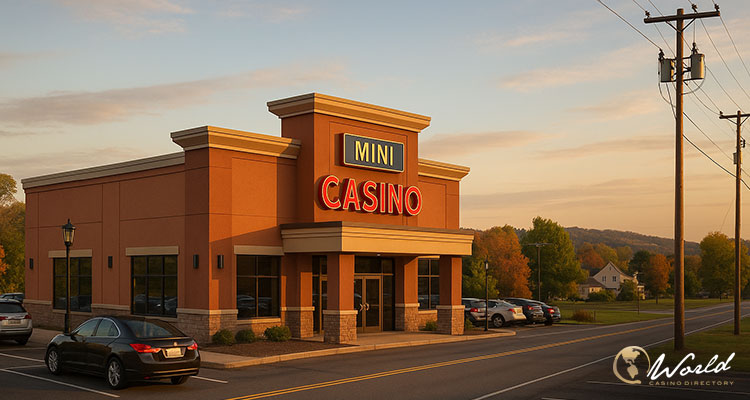College Township officials have released the findings of their long-anticipated local impact study on the proposed Happy Valley Casino, slated for the former Macy’s site at the Nittany Mall. The results highlight potential financial gains and job creation while acknowledging lingering questions about possible social consequences.
The study, carried out by Convergence Strategy Group, was presented to township council and is now available on the township’s website. It comes after years of legal battles, zoning debates, and community divisions over the casino project, which has been in motion since Pennsylvania expanded gaming legislation nearly a decade ago.
Economic Benefits and Job Growth
According to Convergence’s analysis, the casino could generate between $1.4 and $1.6 million annually for College Township through tax revenue. Beyond township coffers, the study projected an additional $1.2 to $1.5 million in gaming-related taxes flowing to the Commonwealth Financing Authority each year, earmarked for Local Share Account grants that benefit communities throughout Centre County.
Employment was another focus of the report. The mini-casino is expected to provide about 350 jobs within the township, with another 52 positions anticipated elsewhere in the county. Visitation is projected at more than 600,000 annually, boosting nearby businesses.
Convergence co-founder Scott Fisher, quoted by WTAJ Altoona, noted that other local institutions would see benefits as well, pointing out that “We also anticipate State College Area School District receiving around $540,000 annually through taxes after the casino’s first year, and around $560,000 after the casino’s stabilization.”
Real estate values, often a concern in casino debates, are not expected to decline. The study cited examples from Pennsylvania’s four existing mini-casinos, finding little to no negative impact on property values. In some towns, commercial activity even increased after a casino opened.
Social Effects Still Unclear
While the economic picture was more concrete, Convergence urged caution when assessing social impacts. Assistant Township Manager Mike Bloom acknowledged that data is limited. “They don’t see a lot in terms of the social impacts, at least in their initial findings,” he said. “That’s caveated with there’s not a whole lot of data at this point, still a relatively new industry for the smaller casinos.”
Consultant Suzanne Leckert said their research suggested no significant rise in gambling addiction, citing the already widespread availability of online betting and Pennsylvania Skill machines. The report also found no expected increases in suicide, divorce, or bankruptcy rates. Domestic violence statistics, however, might see a slight uptick given the county’s currently low baseline.
As for crime, Convergence estimated only modest effects, such as minor increases in DUI, fraud, and disorderly conduct cases. The study predicted just one additional police call per week, two fire department calls monthly, and less than one emergency medical call each month.
Leckert compared casinos to large retail outlets in terms of demand on local services, explaining, “Officials in these casinos’ host communities almost always tell us the same thing — that the casino is just like another big box store, and that they usually get more [police] calls to their local Walmart than the casino.”
Community Reactions
The debate in College Township has been as much about values as economics. Some residents continue to oppose the project, citing risks to vulnerable groups. During a township meeting, Andrew Shaffer, a State College Borough resident and casino opponent, argued that the township should take proactive steps: “You have the opportunity to be better than those other host community officials who take the benefits of hosting a casino while leaving others to deal with the fallout.”
Others, especially students, see potential excitement in the development. Penn State senior Jack Kirchner expressed enthusiasm: “I love the idea of a casino coming to the area. I’m a big gambler myself, love trying to spend money to make money. I think it’s going to bring a lot of buzz to the town. I’m looking forward to having it here.”
Freshman Jarett Wodotinsky, however, raised concerns about the casino’s proximity to campus. “I mean, it is their choice if they want to go in or not. But I feel like it is, like, enticing them to go because it’s so close,” he said, adding that student opinion is divided.
Kirchner countered, stressing personal responsibility: “Obviously, it’s up to us if we want to go. If we don’t want to go, no one’s forcing us to go to the casino and check it out. So I don’t think it’s exploitative at all to the students.”
Township Plans Next Steps
Despite the completion of the study, township leaders emphasized that their work is not finished. Bloom underscored the need for vigilance: “Moving forward, it’s incumbent on us to continue to monitor the impacts in the community and understand those.”
Council members echoed that sentiment, pledging to use some of the casino’s tax revenue to fund partnerships with healthcare providers and social service organizations. Council member Susan Trainor described the moment as a chance for proactive leadership: “I do think that this gives us an opportunity to do something as a community that other communities have not yet even thought about.”
With the Happy Valley Casino preparing for a spring opening, the township now faces the challenge of balancing projected financial gains with responsible oversight of potential risks.



